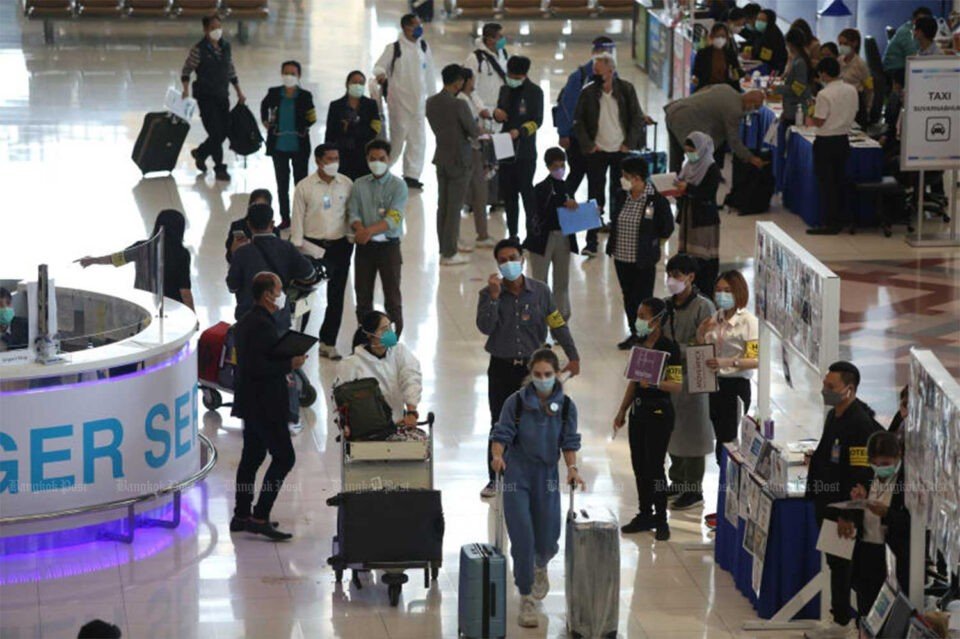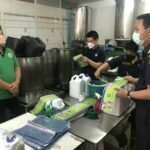People arriving in Thailand, , under “Test and Go”, “sandbox” or other quarantine programs no longer need a negative COVID-19 RT-PCR test certificate, issued within 72 hours prior to departure.
This relaxation of requirements applies to arrivals by air, land and sea.
All arrivals from abroad are, however, still subject to RT-PCR tests upon arrival and must stay in their pre-booked hotels until a negative result is available, usually for one night.
They are also required to take a self-administered rapid antigen test on the fifth day after arrival. If the tests are positive they will have to be treated.
Foreign tourists are still required to have insurance coverage of US$20,000.
Another measure from the Centre for COVID-19 Situation Administration (CCSA) taking effect today is the rezoning of COVID-19 areas, with the controlled (orange) zone, in which serving of alcohol in eateries remains prohibited, being reduced from 44 to 20 provinces, and two more provinces added to “sandbox” areas, namely Phetchaburi and Chiang Mai, as part of a gradual ease of restrictions.
To facilitate arrivals from abroad by land, the CCSA has opened the border crossing in the southern province of Satun, in addition to those in Songkhla, Nong Khai and Udon Thani provinces.
Tourism and Sports Minister Phiphat Ratchakitprakarn said that the ministry will propose to the CCSA that they do away with the “Thailand Pass” requirement for arrivals under “Test and Go”, “sandbox” and other quarantine programs on June 1st, if infections during and after the long Songkran holidays remain between 50,000-60,000 cases a day and daily death toll does not exceed 100.
Meanwhile, the COVID-19 Information Centre reported 28,379 confirmed infections through RT-PCR tests today (Friday), including 62 cases among overseas arrivals, and 92 deaths in the past 24 hours.
23,843 people have recovered today and 251,214 are still undergoing treatment.
Infections so far this year are 1,433,291 and the death toll is 3,524.




